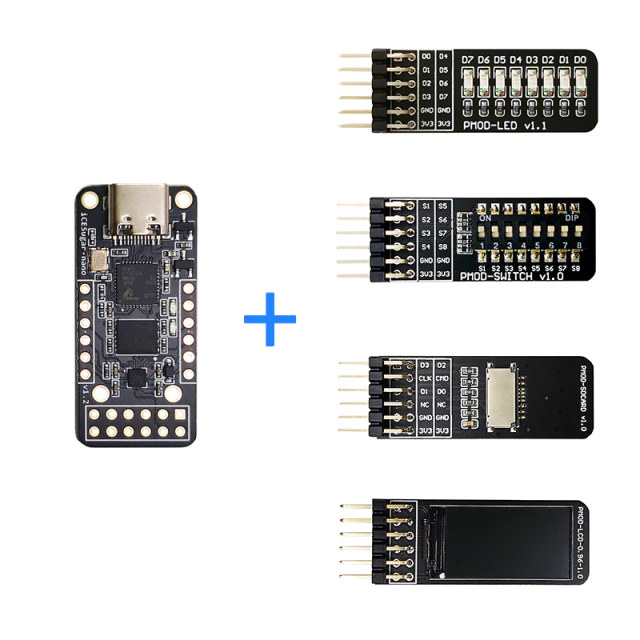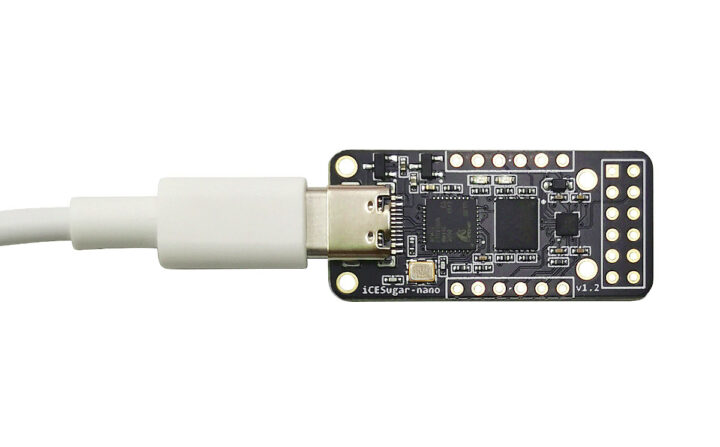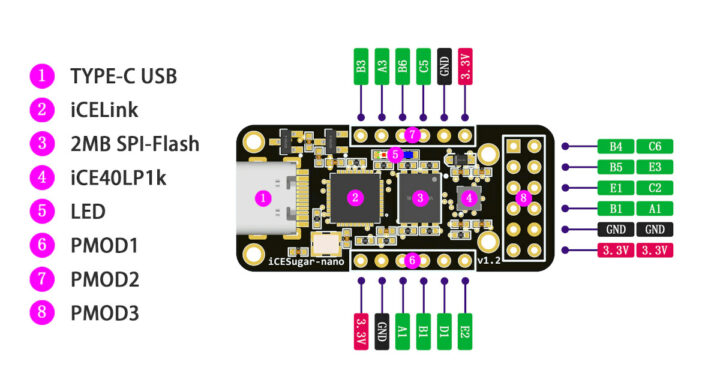Muse Lab’s iCESugar-nano is a tiny FPGA board based on Lattice Semi iCE40LP1K-CM36 programmable via its USB-C port through on-board iCELink debugger, and exposing I/Os for three standard PMOD connectors.
The board is fully supported by Yosys open-source toolchain ( Yosys+ nextpnr + IceStorm), and the onboard debugger supports drag-and-drop programming so that you can just drag the FPGA bitstream into the virtual disk to program it through a USB Type-C cable.
- FPGA – Lattice Semi iCE40LP1k FPGA with 1280 LUT/8KB SRAM/
PLL - Storage – 2MB SPI flash (W25Q16)
- USB – 1x USB Type-C port for power and programming
- Expansion – 14x usable IOs with 1x 12-pin PMOD connectors and 2x 6-pin PMOD connectors
- Debugging – On-board iCELink debugger based on Arm Mbed DAPLink
- Misc – Adjustable clock (8/12/36/72MHz), LED
- Power Supply – 5V via USB-C port
- Dimensions – 3.9 x 1.8 cm
Documentation, schematic PDF, links to tools, and an Ubuntu virtual image with all tools pre-installed can be found on Github.
I first found the board for $19 while browsing Aliexpress, but it can also be purchased on Tindie for the same price. There are also some kits with a choice of PMOD expansion boards with eight LEDs, an 8-position DIP switch, a microSD card socket, or a 0.96-inch LCD.
 If you’d like something a bit more powerful, Muse Lab also developed the iCESugar-Pro board with a 24K LUT Lattice LFE5U-25F-6BG256C FPGA, 32MB flash and 32MB SDRAM capable of running Linux on a RISC-V softcore. That board is sold for $47 on Aliexpress, and you’ll find resources for development on Github.
If you’d like something a bit more powerful, Muse Lab also developed the iCESugar-Pro board with a 24K LUT Lattice LFE5U-25F-6BG256C FPGA, 32MB flash and 32MB SDRAM capable of running Linux on a RISC-V softcore. That board is sold for $47 on Aliexpress, and you’ll find resources for development on Github.

Jean-Luc started CNX Software in 2010 as a part-time endeavor, before quitting his job as a software engineering manager, and starting to write daily news, and reviews full time later in 2011.
Support CNX Software! Donate via cryptocurrencies, become a Patron on Patreon, or purchase goods on Amazon or Aliexpress






